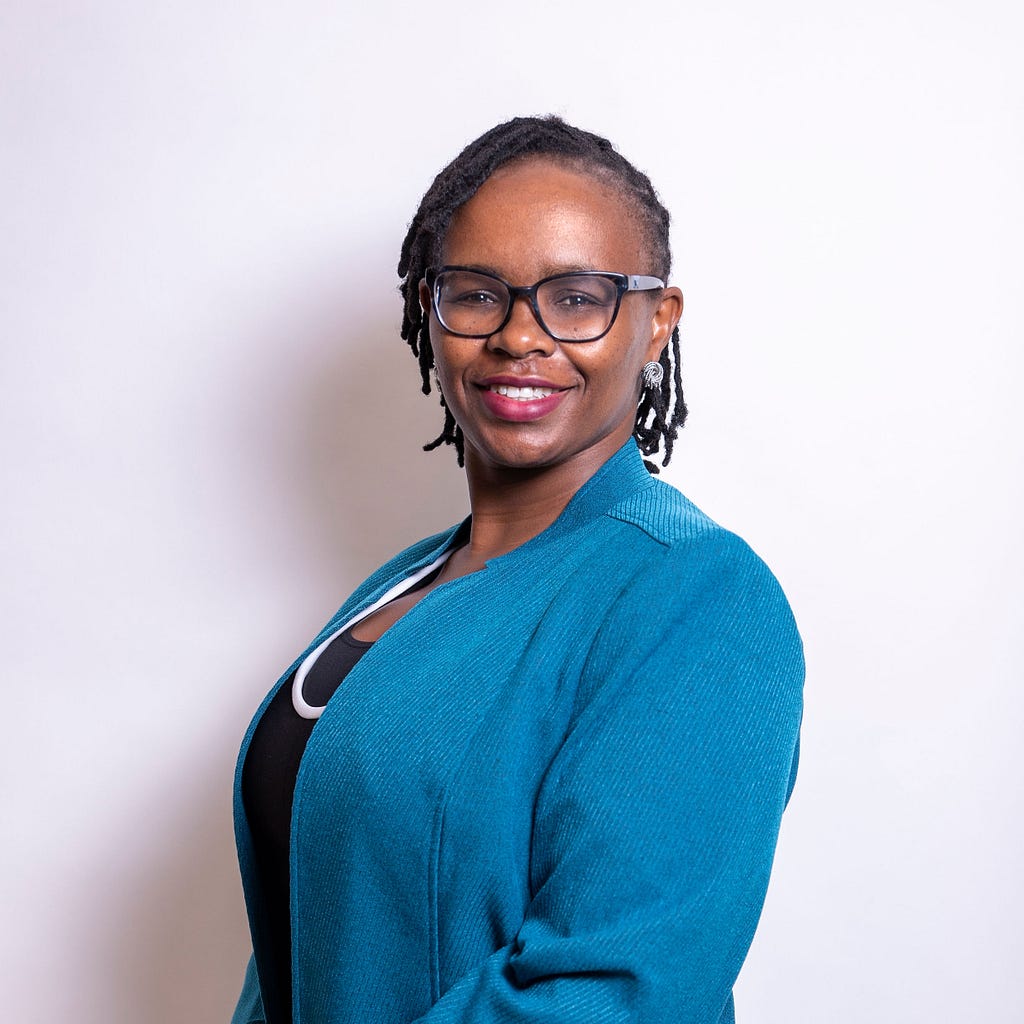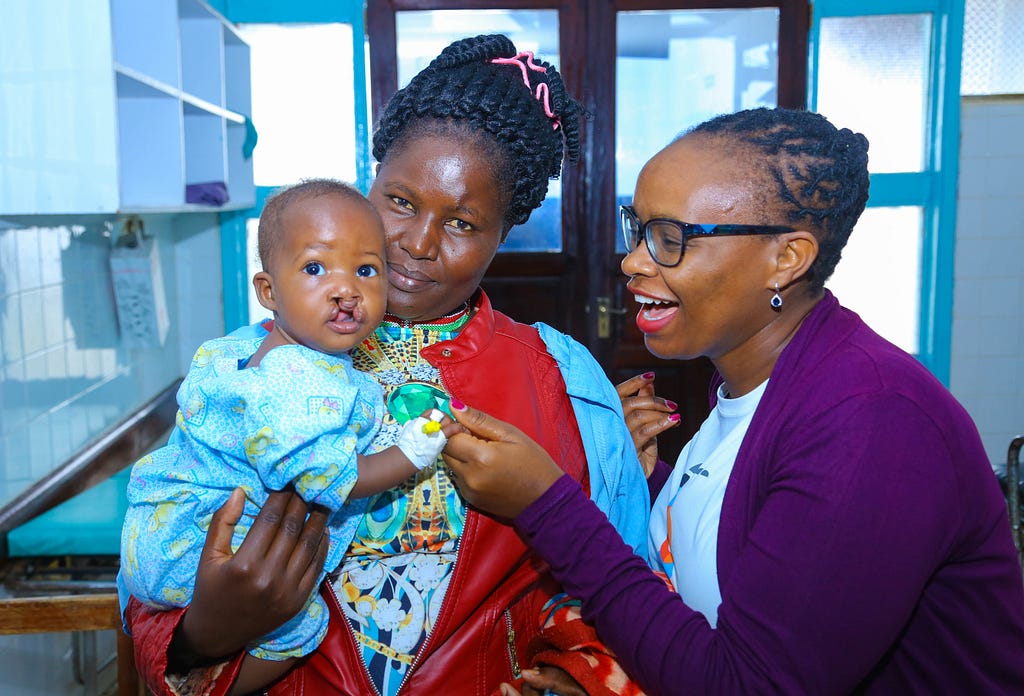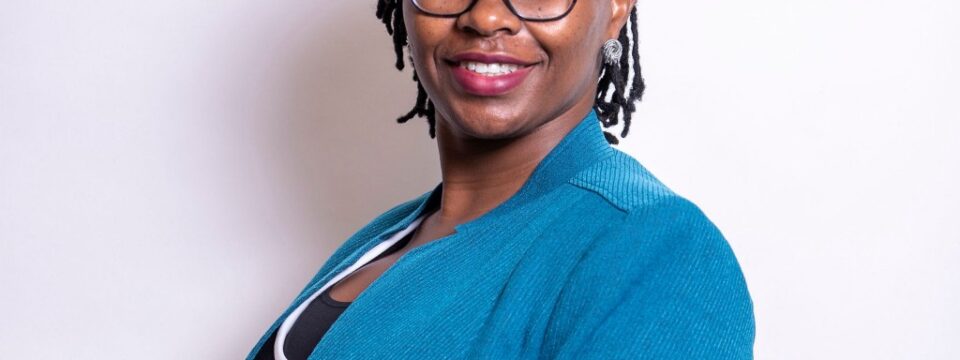
I wish I had been told the power of emotional intelligence and managing our reaction or response to situations. I have burnt many bridges because I took things personally, when I should not have.
As part of my series about “individuals and organizations making an important social impact”, I had the pleasure of interviewing Esther Njoroge.
Dr. Esther Joined Smile Train in 2008 as a volunteer and now serves as the Senior Vice President, Global Medical Programs. In this capacity, Dr. Esther leads the strategic direction of Smile Train’s medical programs around the globe and oversees the implementation of Smile Train’s Education and Training and Safety and Quality programs. Prior to this, Esther served as the Vice President and Regional Director for Africa. During her tenure, the programs have grown scale, spanning 38 countries with 254+ partner hospitals and reaching over 116,000patients, increasing access while improving safety and quality.
Thank you so much for joining us in this interview series! Can you tell us a story about what brought you to this specific career path?
A meeting of chances brought me into my current role as Senior Vice President of Global Medical Programs at Smile Train. In April 2008, I went to a friend’s son’s birthday party where I met this gentleman who at the time was being recruited by Smile Train. He asked around if anyone had heard of Smile Train, and I hadn’t.
He said, “you know, they’re asking me to cover the [entirety] of Africa and I think it’ll be a lot of work, so I’m looking for volunteers to help me.” I was right out of my medical degree and had just done my internship and was working for the government, so I had a lot of free time. So I volunteered!
That was in 2008. Soon after was the first time I had an encounter of actually meeting a child with cleft. I’d only met one child with cleft before, a friend’s baby. So volunteering with Smile Train was the first time I really got into the details of cleft lip and palate–what it is, what it entails to treat–and I just fell in love with the work. I volunteered for three years until an opportunity presented itself in 2011, and now I work full time with the organization.
Can you share the most interesting story that happened to you since you began leading global medical programs at Smile Train?
A while back, we went on a trip to rural Kenya to visit one of the beneficiaries of our programs. The trip was a long journey to the Eastern side of Kenya.
When we arrived, we met a cleft-affected family and we spent the entire day with them. The child who had been through cleft treatment was a lovely little boy who just kept playing all day, with little puppies following him everywhere.
At the end of the day, the grandmother gave me a live chicken as a token of appreciation. She’d been through a lot; when her grandchild was born with cleft, her daughter’s husband left, and her daughter and grandchild had come to live with her. So she gave me a live chicken — everything that she had with her — as appreciation. Of course, I couldn’t carry a live chicken several hundred kilometers back to Nairobi, but for me, that gesture was very moving. This is just one of many similar stories in my mind; the work that Smile Train does is just transformative.
Can you share a story about the funniest mistake you made when you were first starting? Can you tell us what lesson you learned from that?
When I was starting out in 2011 or 2012, I went for a meeting with a senior health official in Malawi. This official had organized to meet with three different organizations that were looking to partner with the government in the children’s surgery space. I made the horrible mistake of speaking up before he called me to speak. It was not at all the right protocol. Even though he made a joke about it and everyone laughed, it was embarrassing and I learnt the important lesson of knowing proper protocol beforehand!
Can you describe how you or your organization is making a significant social impact?
Smile Train is not just making a social impact. It’s making an economic impact. For a lot of the children who are born with cleft, they come from really low socioeconomic status. And a child born with cleft in such a family is normally devastating. First, there is the social stigma of having a child who is born differently. Then, if the family is at all aware of the options, there is an expectation that the treatment journey is expensive. But for many, they’re not even aware of a treatment path.
What Smile Train does is give hope to families of children born with cleft that their children can be treated and move on to live full, productive lives. And the economic impact is because when these children are treated they are able to continue on to attend school and hold jobs. I have contact with many people who we helped a while back and now they’re in the work environment. We’re making an economic impact.
The economic impact goes beyond that, too. There’s also the investment side, where Smile Train is making huge investments into healthcare systems through trainings, scholarships and capacity-building programs that improve health care professionals’ capabilities to offer safe and quality care. And then there are the infrastructure investments, where we invest in things as simple as monitoring equipment to things as complex as an entire operating room. And we create environments for surgery that either never existed, or if surgical environments do exist, we can provide thorough makeovers for them to be safe for children.
Can you tell us a story about a particular individual who was impacted or helped by your cause?
There was a man who came to us who had received cleft lip and palate treatments elsewhere. His cleft surgery hadn’t been perfectly done, and his palate was still open, so he never was able to communicate verbally. He had gone all the way to university without the ability to speak well. Then he was referred to our program, and Smile Train helped provide a revision of the lip so that it was better aligned, and then he had the cleft palate treated and went into the speech therapy program. Afterward, he was able to communicate and was no longer feeling shy. While his speech is still not 100% intelligible, he can still communicate better than he was able to for much of his life.
Since then, every single morning, he sends me motivational verses. Every single morning. There are thousands of such people I’ve interacted with, but this one stays in my mind because some mornings when I wake up and I am feeling completely drained, his message pops up and it just lifts my spirit.
Are there three things the community/society/politicians can do to help you address the root of the problem you are trying to solve?
The first thing that I would want is for governments and policymakers to invest in the surgical ecosystem. When a child is born with cleft, for those who are aware of the treatment, it is perceived to be expensive because surgery is perceived to be expensive. It doesn’t have to be. It is only expensive if it is not well-invested in.
Surgery is not just for children who are born with certain conditions, it’s for people who have accidents, people who have cancer, and people who are delivering children. Each of us, at some point, may require surgical treatment, but a lot of us live in places where when we need that treatment, we may not be able to access it. And if we’re able to access it, we may not be able to afford it. So investing in the healthcare workforce for surgery, investing in the infrastructure so that communities can actually access safe and quality care when they need surgical treatment, and investing in the financial end of it so that it’s not an expensive affair that leaves families impoverished because there is a surgical need.
My second wish is for prioritization of children in the surgical ecosystem. Cleft is one of the most common congenital conditions. If a child is born different, the chance that their difference is cleft is very high. And yet, the treatment for cleft is largely left to NGOs, to well-wishers, and not–in most countries–considered mainstream care.
Without treatment, these children will live with a disability that could have been prevented. They may not attend school, they will have recurrent infections, they will have problems hearing, they will have problems speaking, and they will be isolated from society. But, if that magic happens of cleft being treated very early on, the likelihood of all those challenges happening is eliminated. So leaders must prioritize the children so that they’re not growing up with disabilities that could have been prevented. This call to action goes beyond cleft, to all congenital issues: like for clubfoot, hernia, or congenital cataracts. Let’s prioritize our children. After all, they are the future.
Third, we need more women in leadership in the health care system. There is no shortage of qualified women. It’s not tokenism, it’s our rightful opportunity to lead. But our societies keep leaving women behind. We go up to a certain level, but beyond that, I’m not sure what happens. So let’s give women the opportunity to lead the health care system, and to lead everywhere, not just in health care.
How do you define “Leadership”? Can you explain what you mean or give an example?
I define leadership as a privilege and an opportunity to make a difference. This privilege and opportunity can be one of three spheres: leading oneself, leading in your spheres of influence, and leading more traditionally. To me, leading oneself means being able to proactively do what is required of you whether it’s a job, as a parent, or as a citizen. Second, it is a privilege and opportunity to lead within your spheres of influence–your friends or family. And then there’s the leadership that now we all perceive as leadership, whether it be in the political arena or in the top level of organizations. I believe each of us is leading in our own space. It is a responsibility and it is a duty to make a difference.

What are your “5 things I wish someone told me when I first started” and why. Please share a story or example for each.
I wish I’d been better prepared for the challenges of leadership.
We look at people and we see how very well put together they are, and how outgoing and amazing they seem, but we never pause to think of the difficulties that are behind that whole, well-put-together person. I wish there was more conversation about the hurdles that people have overcome, the give and take people have to do, the opportunities that pass you by because you have to make choices. I think some “aha” moments would have been more “oh well” had someone had a direct conversation with me about the challenges.
I also wish I’d better understand that the more you are given, the more is expected of you. The higher you go in the leadership ladder, the more responsibilities in both your career and in other parts of your life, come up. This is not necessarily a bad thing. I had a former primary school classmate reach out because she had reached her wits end and had no funds to take her kid to school–so she reached out for support. Sometimes you’re not prepared that when you’ve reached a level of success, that people reach out for help. But there should be more advice that it’s not a lone journey. When you rise up, you raise others alongside you.
I wish I had been told the power of emotional intelligence and managing our reaction or response to situations. I have burnt many bridges because I took things personally, when I should not have.
Had I known the immense reward in networking and putting myself out there, I wouldn’t have spent so much time in my little corner, doing my work and keeping my head down. I would have spoken up sooner about the things I am passionate about, and I would possibly have gained more mileage along the way. Therefore, to a young woman reading this, know that opportunity won’t find you at home or in your office, get out and mingle.
If I had been told to trust myself and my instincts more at an early age, I would likely have dodged the bullet of disappointing friendships and loss of great ones that I failed to tend to. We are social animals, our networks are our net worths, I know that now.
You are a person of enormous influence. If you could inspire a movement that would bring the most amount of good to the most amount of people, what would that be? You never know what your idea can trigger. 🙂
If I could inspire a movement, I would inspire one that advocates for access to safe surgery for children, specifically for children with congenital conditions like cleft. I would inspire the movement to urge governments to invest in children’s surgery, and prioritize the surgical ecosystem. Through that, I’d bring the most good.
On my continent, more than 40 percent of the population are children below 15 years old. Their surgical needs are being left behind because we haven’t invested sufficiently. I recently prepared a presentation where I researched electricity penetration as a proxy for surgical care availability, and I looked at South Sudan: a country that has 1 percent electricity penetration. How much surgery is happening there? So if I could inspire my fellow Africans to pressure their governments to invest in surgical systems, I’d be bringing the most good to my continent, and possibly the world.
Is there a person in the world, or in the US with whom you would like to have a private breakfast or lunch with, and why? He or she might just see this, especially if we tag them. 🙂
I have two people. The first is Martha Karua. She was just named as running mate for one of the Kenyan presidential hopefuls, and I have admired her for a very long time because she’s a woman of integrity in a system that is morbidly corrupt. She stands by her values and she’s just an iron lady. I would love to meet her and hope I can have that opportunity because she’s close to home.
The second is a split between U.S. Vice President Kamala Harris and Associate Justice-designate of the U.S. Supreme Court Ketanji Brown Jackson. I would just want to know what their journey has been like, and what their challenges were like. I want to know what their journeys were to get to where they are today.
How can our readers follow you on social media?
- LinkedIn: Esther Njoroge-Muriithi
- Twitter: Esther_Njoroge
This was very meaningful, thank you so much. We wish you only continued success in your great work!
Social Impact Heroes: Why & How Smile Train’s Dr. Esther Njoroge Is Helping To Change Our World was originally published in Authority Magazine on Medium, where people are continuing the conversation by highlighting and responding to this story.
